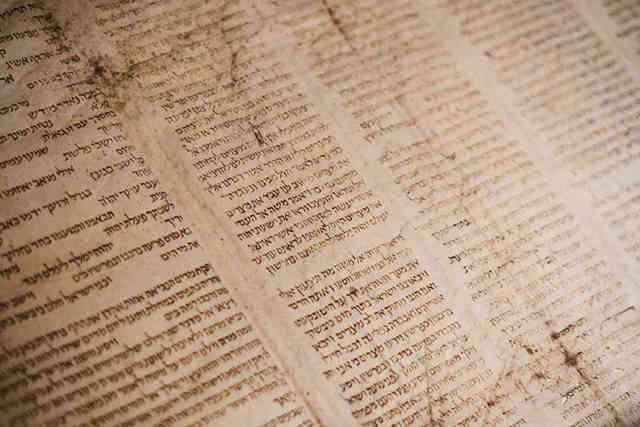The following is an article from a seven-part series on biblical stewardship from the National Christian Foundation. One of the goals of Generosity Tyler is to inspire our community to experience the joy and reward of biblical generosity through insightful teaching. Although we still aren’t gathering together as regularly as we were before, we hope by sharing these articles with you for the next seven weeks, it will spur you on in your generosity journey.
By the end of his life, King David had wealth beyond measure. He had brought unity to Jerusalem and established it as the mightiest city in the ancient world.
Through conquest, he had amassed great national treasure, and his dying wish was to use some of that wealth to build a house for God. Though he would not be the one to build it (his son, Solomon, would), David modeled generosity for the nation by giving enormous gifts to the construction of God’s house.
But then David went beyond those national reserves and gave from his own stores of silver and gold, apparently just for the joy of giving it. His example was so great that the leaders of Israel were all compelled to give, not only their possessions, but even their lives, to God’s holy purposes. The Hebrew text from 1 Chronicles 29 says they gave willingly, “with perfect heart.” This public outpouring of generosity set off a sort of chain-reaction effect, and when the people of Israel saw it, they broke out in spontaneous and worshipful celebration.
In the midst of the noise of this rejoicing, the mightiest and wealthiest man on earth stood up and prayed:
Who am I, and what is my people, that we should be able thus to offer willingly? For all things come from you, and of your own have we given you.
–1 Chronicles 29:14
Estimates of what David’s gift would be worth today range from $200–$800+ billion. Yet, David held it all with an open hand. And though the enormity of his wealth was overwhelming, David is not best remembered for his net worth. Instead, he is remembered as the “man after God’s own heart.” What kept a man at this level of prosperity and power from becoming selfish and corrupt? It was probably that heart and one solid principle. David knew that everything is God’s:
Yours, O Lord, is the greatness and the power and the glory and the victory and the majesty, for all that is in the heavens and in the earth is yours. Yours is the kingdom, O Lord, and you are exalted as head above all. Both riches and honor come from you, and you rule over all. In your hand are power and might, and in your hand it is to make great and to give strength to all. And now we thank you, our God, and praise your glorious name.
–1 Chronicles 29:11–13

1 Chronicles 29:11–13
The Earth and everything in it …
Much earlier, David had written these powerful words:
The earth is the Lord’s and the fullness thereof, the world and those who dwell therein,for he has founded it upon the seas and established it upon the rivers.
–Psalm 24:1–2
As Founder and Creator of the heavens and the earth and all that is in them, God holds the rights to all of it. That includes even us – our bodies, our minds, and our lives (Job 12:10; 1 Corinthians 4:7, 6:19). C. S. Lewis said:
Every faculty you have, your power of thinking or of moving your limbs from moment to moment, is given you by God.
If you devoted every moment of your whole life exclusively to his service, you could not give him anything that was not his own already.
Any wealth, power, or strength we have originated with God. Any gift or talent we have – the same is true (James 1:17; 1 Corinthians 12:1–11). Even our ability to give generously comes from God (Deuteronomy 8:18; 2 Corinthians 9:10–11). Everything we have and everything else that exists is all his.
This is probably how King David was able to so easily let go of the treasure he’d amassed. He knew where it came from and that it wasn’t his to keep. The idea that everything belongs to God isn’t only a matter of faith. It’s a fact, which we will recognize and incorporate into our worldview or ignore to our own detriment. We are merely managers of what he has given us.
To read more articles like this, check out the NCF website.

